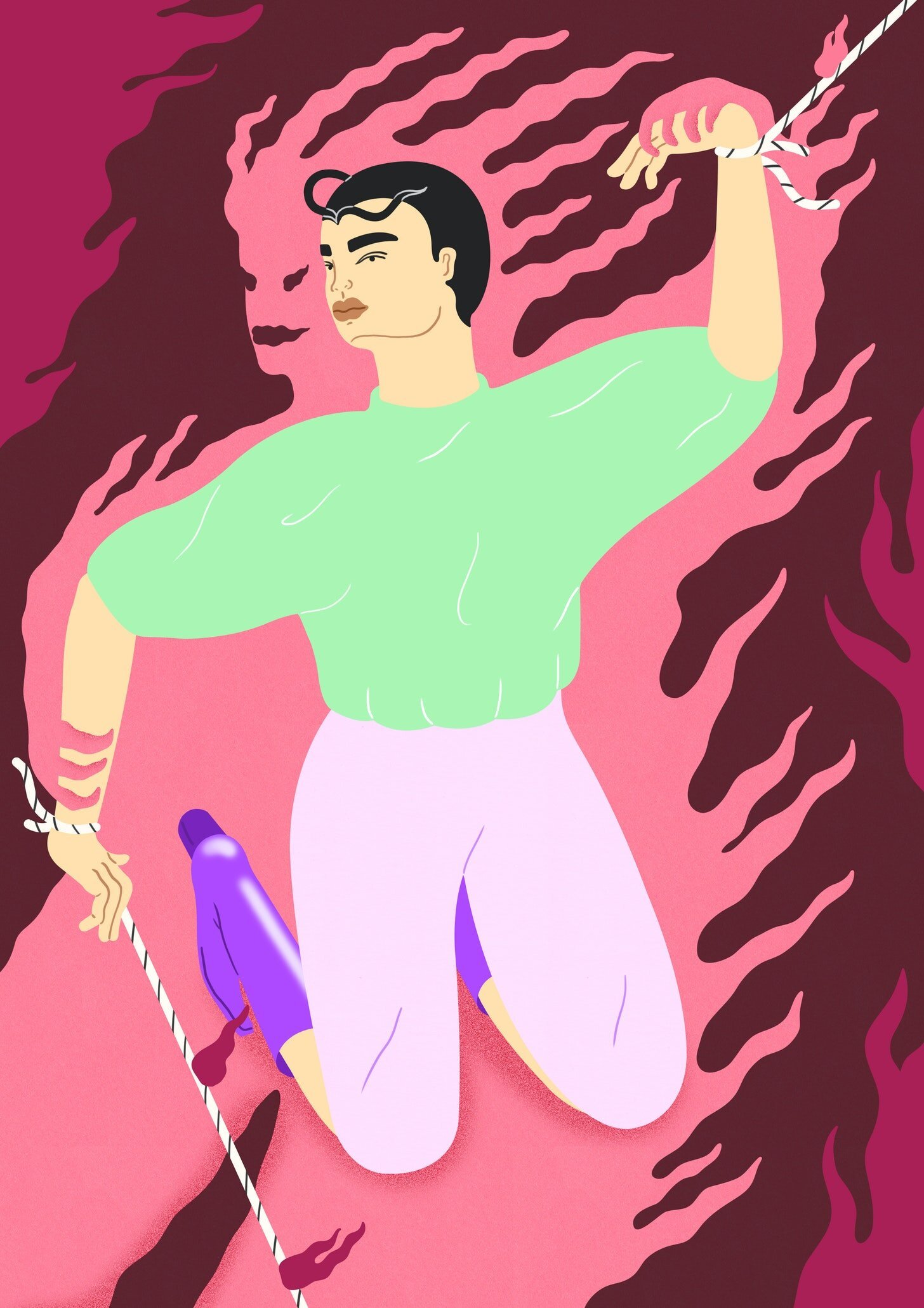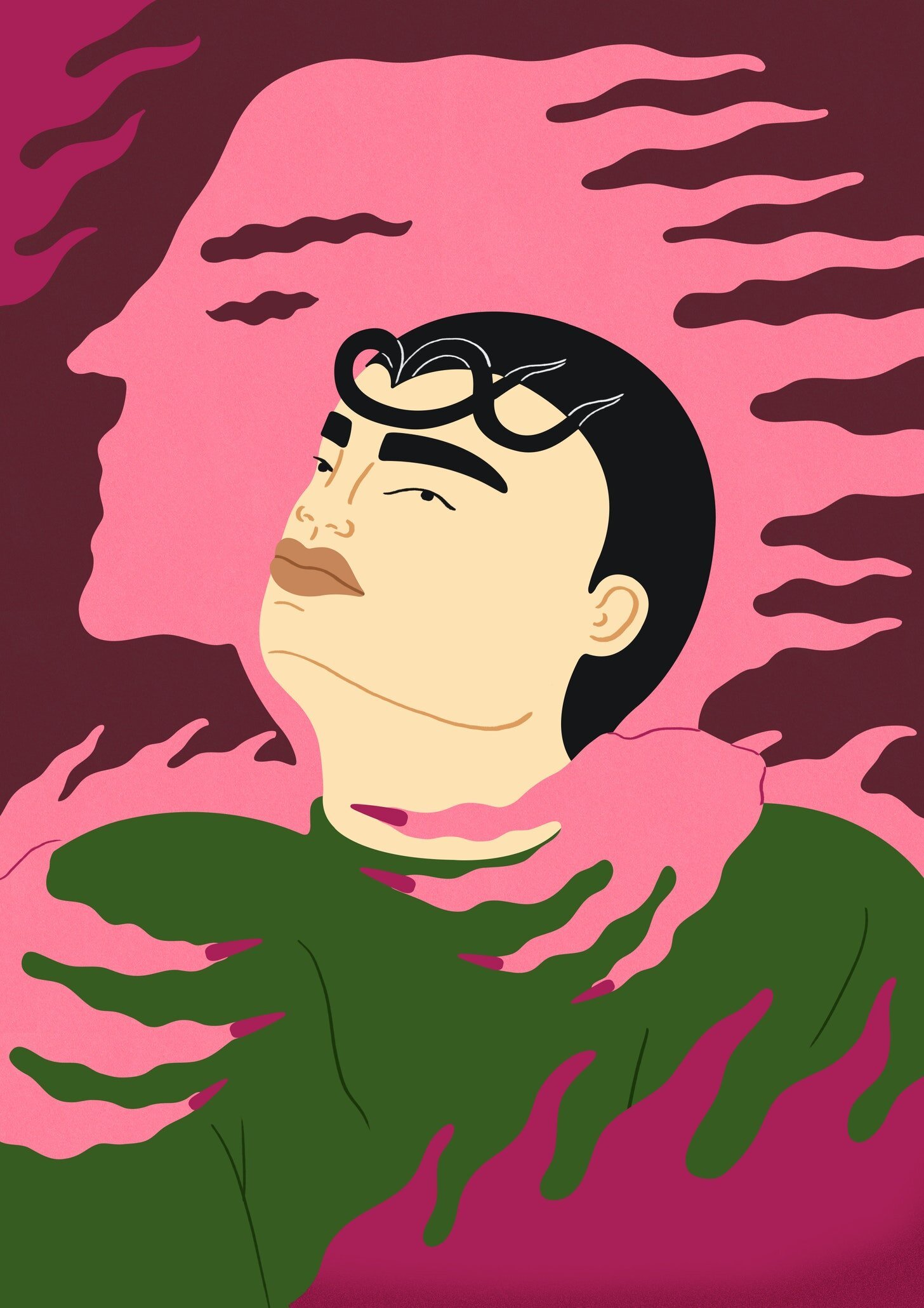Was I Right All Along? On OCD and the Pandemic
Make it stand out
When it seemed like the whole country was panic-buying toilet roll, my housemates and I were already self-isolating. My feelings were suffocating — not only because I couldn’t catch my breath, or because we weren’t allowed outside — but because I was now spending a large part of my day reading article after article on the right way to sanitise our hands, our bodies, and our homes. I browsed page after digital page of speculation on how the coronavirus was spread, whether crowds or the tube or supermarkets were the danger zone, and how likely was it that you would die?
Most of this information was already known to me. Ever since occupying my Year 6 classroom, I’ve had an innate hyper-awareness of the way germs spread: my teacher used glitter to demonstrate how everything we touch has a residue. What ensued was childhood embarrassment about the regularity with which I felt the need to wash my hands, and intense scrutiny of my parents’ cleaning methods. But aside from the fear of germs, if someone I knew got sick — or if I was feeling untraceable anxiety — I would brace myself with not only hand-washing; but compulsions that ranged from repeatedly completing a puzzle, reading a Bible verse every day, collecting pennies, or making my bed.
The reason for my embarrassment is that at my core, I don’t feel like a person who is naturally inclined to demand stringent sterility from my surroundings. Intrusive, unwanted thoughts and obsessions are ‘ego-dystonic’, meaning ‘not in alignment with the sufferer’s self-concept’. As Rose Cartwright, the author of Pure tweeted, ‘OCD… has nothing to do with germs and everything to do with compulsively trying to attain unattainable certainty’. But contamination is something I am unwittingly and unwantedly aware of, irregardless of a global pandemic. When suddenly, the general population became more interested in contamination, in hand sanitiser and soap, in procuring gloves and face masks, a small and shameful part of me felt vindicated and superior. I had fed this knowledge to myself as a child as a way of coping with the unknown, and now there was a chance that others may become newly aware of the unending strife involved in “perfect” cleanliness.
___STEADY_PAYWALL___
I was experiencing the odd dissonance of having outside confirmation, even government mandating, of a very interior anxiety. This made it newly difficult for me to distinguish “normal” behaviour from a tip-over into obsession. At times it seemed like perfect cleanliness was the only thing that could curb the destruction of the virus — and was the only thing I could conceivably control in this scenario. But there was the other part of me that knew how easy it would be to slip back into an unachievable perfection. I knew that I couldn’t return to the merry-go-round of ultimately unsatisfying ritualistic behaviour. I knew that I could never do enough to pacify a potentially obsessive need for everyone else’s hygiene to match my own high standards. I knew I could not control other people, nor how they responded to these new standards of living.
However odd this was to experience, a new societal awareness of contamination is not a collective form of OCD, even if that small vindicated part of me felt that it could be. Maintaining standards of hygiene during an international pandemic is not an unhealthy response. The vindicated part — the OCD part — was almost thrilled by a rejection of what was previously “abnormal” behaviour. However, on my first trip to the supermarket, the sight of gloves, anti-bacterial spray, and social distancing did not soothe me. Far from being a balm for my OCD-haunted brain as I imagined it might be, my focus zoned in on what I perceived as flaws in this surreal new system, of rules not being perfectly adhered to.
Claims that ‘we all need OCD now’ ignore the lived reality of the disorder. OCD is a stress of an internal kind, the kind that makes it impossible to ever reach a stable sense of completion or safety. For those who suffer from it, it will not stop after a pandemic’s end or after it ceases becoming “useful”. The feeling of bits of my brain being pulled inside out was only an initial reaction to facing one of the largest things I’ve not been able to control: an internationally life-changing and life-endangering disease.
For me, OCD was an interior attempt to control the exterior world. The rituals I practised mutated as my teenage years passed, until one summer the anxiety and panic attacks became so overwhelming that I felt unable to leave my house. Agoraphobia was an entirely different flavour of experience — instead of attempting to negate my powerlessness by enacting obsessive behaviours, I was so exhausted that I completely withdrew from the world instead. It was safer, I felt, to just stay home.
The state-endorsed plea to stay home as much as possible, coupled with regular hand-washing, was almost too fortuitous for my old anxiety-riddled self to handle. How could it be that those demons I had battled for so long turned out to be right? That the behaviour I took to the extreme was now explicitly encouraged?
The months that I spent entirely at home aged 16 was the loneliest time of my life. I saw no one apart from my family members, I took short walks alone, and my only escape was through the internet. What was wholly different as lockdown began, however, was that I was not completely detached from the rest of the world. A collectiveness started to emerge as a much larger amount of people had to adapt to the new normal: more effort was made to live-stream events, Robbie Williams sang from isolation every evening, and everybody on the planet started using video calls. Culture and socialising instantly became more accessible than it ever had been.
And I couldn’t help but feel somewhat pleased. Staying home is something I have practice in. And though staying home as much as we have to looks similar to the acute agoraphobia I experienced, it felt completely different. I felt normal. I felt normal because — we were told — any reaction or coping mechanism in response to an unprecedented global event IS normal. It was nice to be actively told I am normal.
There has been a palpable sense of projected relief onto the moment when we are released from lockdown, that moment we are ‘free’ again — normal. I never had that climactic moment after agoraphobia, that liberating first sniff of fresh air and the pub. Coming out of hiding was an incremental process, as I imagine the ending of our pandemic measures will be. And just as the knowledge of my trapped and obsessive moments have never fully disappeared.
Will we collectively remember what this shared experience felt like? That we could and did survive without the ‘outside world’? That those with chronic conditions will still have those conditions after this has all ended? That the ending has the potential to be the beginning of something much better?
Words: Naomi Morris | Illustrations: Assa Ariyoshi


